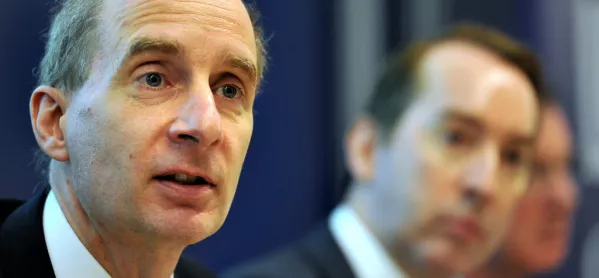The government should step in to “curb” the pay of multi-academy trust chief executives, the architect of the academies movement has said.
Lord Adonis said that no MAT boss should earn more than the prime minister and that the salaries received by some individuals risked “discrediting the academy movement”. He called on them to set an example by “not being greedy”.
Speaking exclusively to Tes, he said: “I don’t think any MAT chief executive should be paid more than the prime minister.
“I can see no justification whatever for salaries in the £300,000-£400,000 range, and I think the government should intervene to curb them.
“I think that this is in danger of discrediting the academy movement by making it appear that chief executives are just in it for what they can get out of it.”
Lord Adonis developed the academies policy when he was an adviser to former prime minister Tony Blair, and he was the driving force behind the programme as a Labour minister.
Since then the number of academies has grown considerably, along with the scale of MATs and the pay of some of their chief executives. The salaries received by some bosses have been criticised and concerns have also been raised about the transparency of some pay deals.
The highest paid MAT CEO is Sir Daniel Moynihan, of Harris Federation, who earned a salary of £420,000-£425,000 in 2015-16.
Sir Greg Martin earned close to £400,000 when he was headmaster of Durand Academy in South London.
The prime minister is paid £150,402 a year.
‘This is public money’
Lord Adonis said he did not understand why the government had not stepped in to curb CEO pay.
“If I had realised that academy principals or trust chief executives were going to be paid sums in excess of £150,000 when I was a minister then I would have intervened to stop it,” he said.
“I believe the government should do so now. I’m very surprised they haven’t done so and I don’t quite understand why.”
He said he did not accept the argument that CEOs were entitled to very high levels of pay if their trusts were delivering good pupil outcomes.
“We should worry about it because it’s public money, and people holding leadership positions should set an example,” he said.
“That includes setting an example in not being greedy.”
Want to keep up with the latest education news and opinion? Follow Tes on Twitter and like Tes on Facebook




